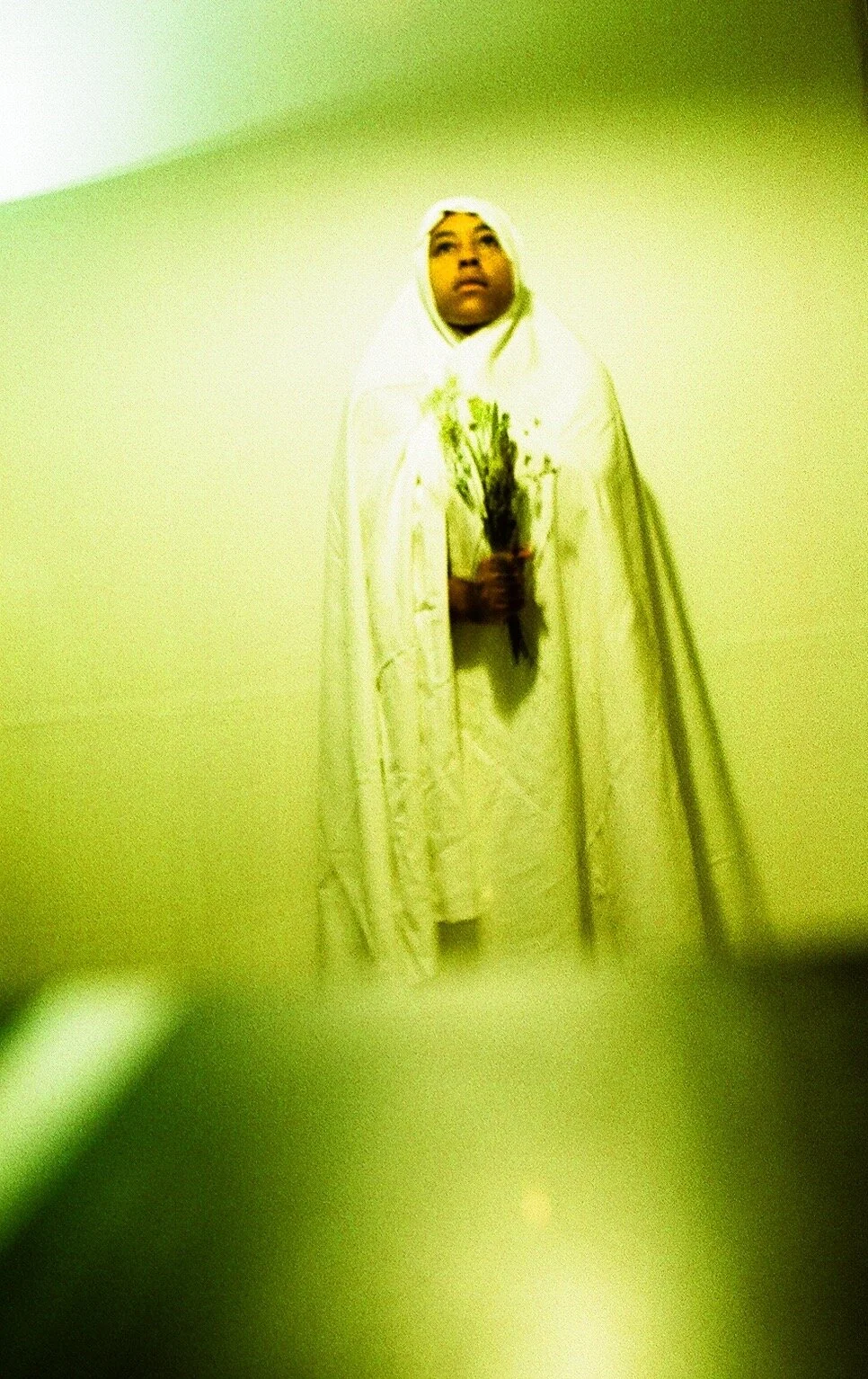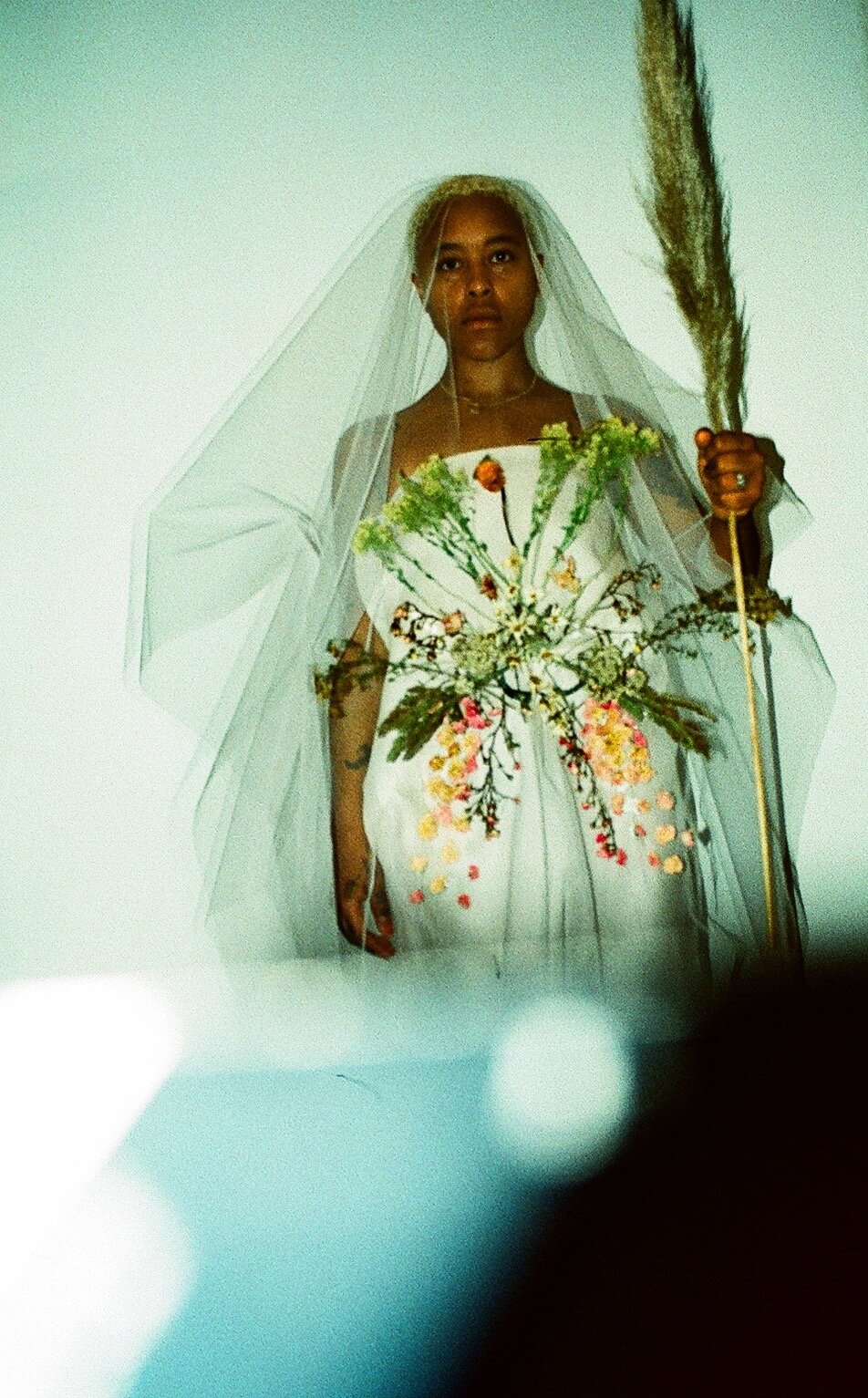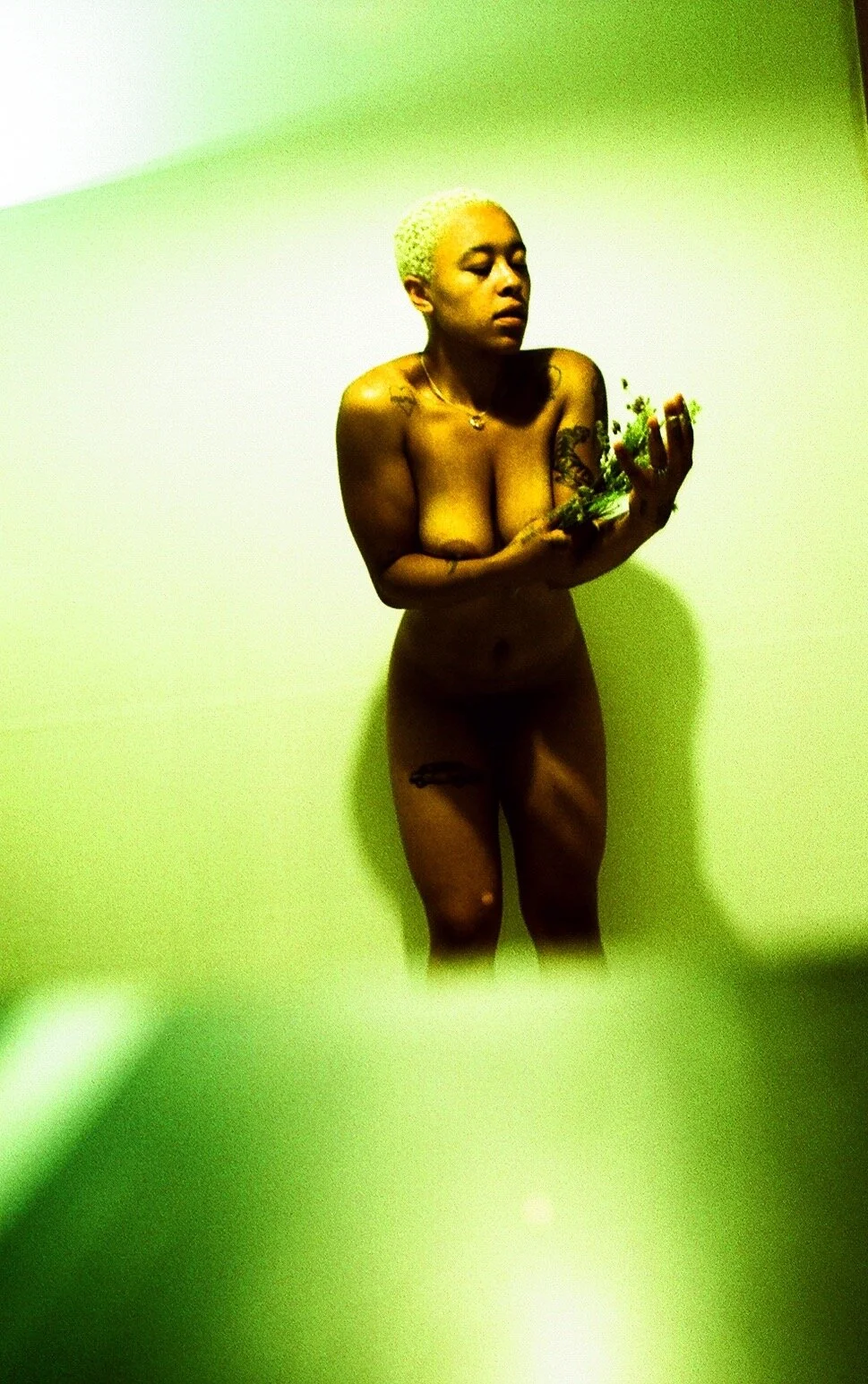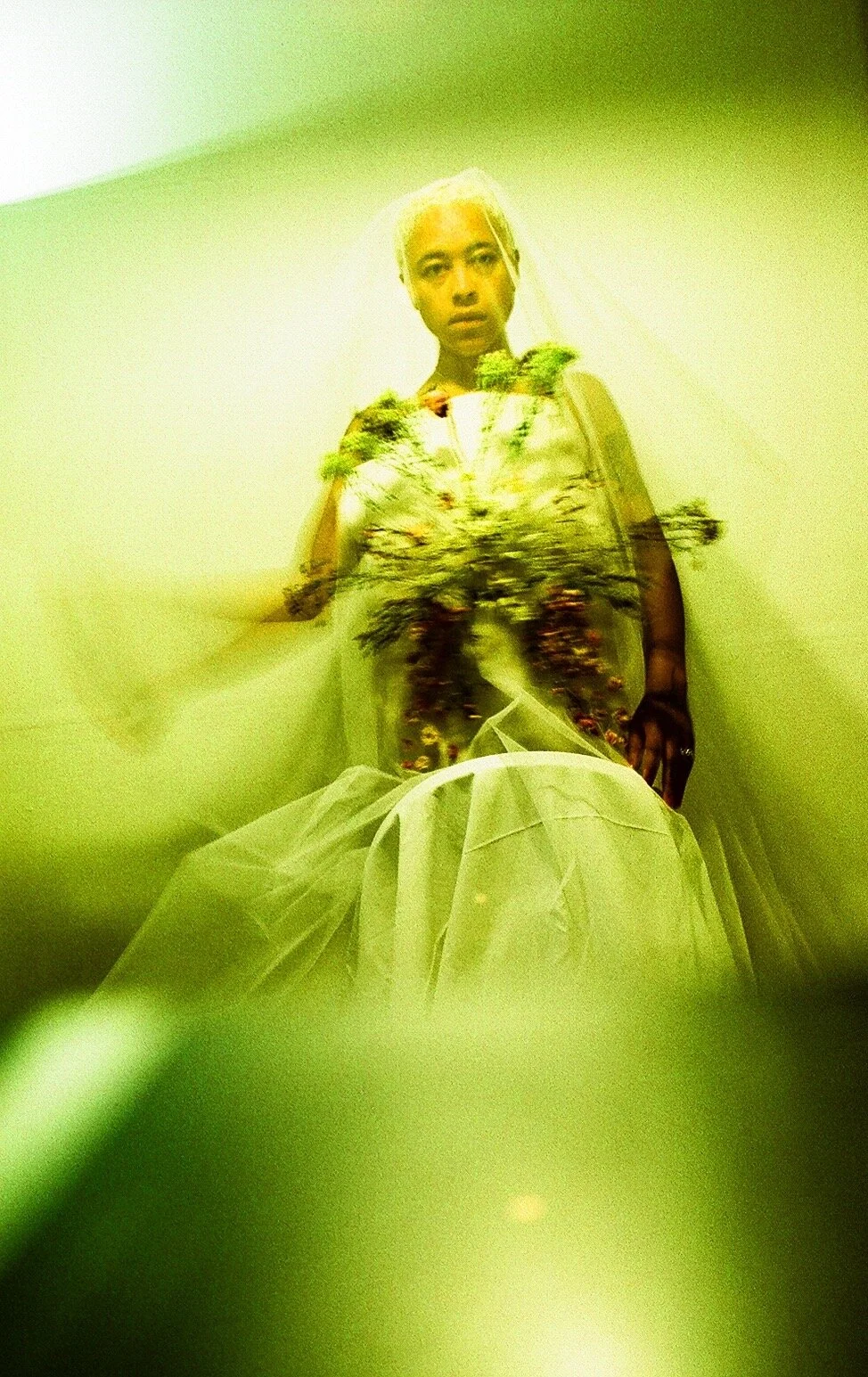Text: Helmi Okpara
Photography: Helmi Okpara
July 18, 2018
"Unconditional love is known as affection without any limitations, or love without conditions. This term is sometimes associated with other terms such as true altruism or complete love. It is a concept comparable to true love, a term which is generally used to describe love between lovers."
In my most recent work, I reflect on what unconditional love means to me. As an artist I use the mediums of both writing, dressmaking and photographing to create a visual of the feelings and memories that surface.
In a time where art has changed its platform and dynamic I have paused and rethought the way in which I represent these ideas. More often than not the social media tools to show our work i.e Instagram push the importance of showing and working with popular people with or without great spiritual connection with the person in order to become 'popular' - constantly following a trend.
So, for this project I choose to take out humans and focus on nature in a way to clarify my own work. I stem away from trends and reconnect with the things that are true to me. The things that give me love, unconditionally.
How I define unconditional love naturally comes from my upbringing. Therefore, I begin to look at the relationship between nature and childhood memories in contrast to city life and adulthood.
“I know I cannot paint a flower. I can not paint the sun on the desert on a bright summer morning but maybe in terms of paint color I can convey to you my experience of the flower or the experience that makes the flower of significance to me at that particular time.”
In a letter to William Milliken (1930), quoted in Portrait of an Artist: A Biography of Georgia O'Keeffe, Laurie Lisle (1981), p. 128
In the same way Georgia O'Keefe informs us that she cannot give us the real flower but can tell you what it means to her, my work shall hopefully do this. The importance in her quote is the acknowledgement that each flower has a significance to her in that particular time.
Flowers, plants and animals are for me a timeline. They act as a guide to my memories.
My childhood consisted of often being around nature. I have fond memories of being in my grandmothers garden picking and smelling her flowers. I remember the smile I'd receive from her when I'd find the tiniest flowers to put on the dining table.
We'd talk for twenty minutes about them and she'd inform me of all the other flowers that were in bloom.
A poem written in my grandmothers garden;
Little flowers, your whispers are loud
Your scent soft but prominent
I fear that you bring the sweetest memories back from a past life that exists no more
How is it that you compliment the birds songs so well?
Your beauty helps raise the Sun for us humans to enjoy
Thank you little flowers, thank you for your joy
Each flower had a beauty of its own and needed nothing but love and appreciation to flourish. This is something I have always admired.
Is it this pure simplicity that drives some of us to love young children, plants and animals more than perhaps our older selfs? Initially, I thought that our reason for doing this was linked to the fact that none of these three things spoke our (adult) lingo. Therefore, our communication with them was one way. Meaning that arguments and so forth were not formed due to there only being one voice, our own, being heard.
I see the women in my family constantly giving love, unconditionally to their children, gardens and animals.
Both my grandmother and mother took a career path in childcare. My grandmother a paediatric nurse and my mother a postnatal healthcare assistant.
Watching them both care and nurture formed my perception of love.
My grandmother is a unique character who responds to stress in different ways. Her comforts however, are clear.
Cats and plants.
Every evening, during dinner, my grandmother would leave in an untimely fashion to water her plants. I found this amusing but slightly irritating as she chose to do this just before desert.
This meant that we would all wait between thirty to sixty minutes for her to come back so that we could carry on to the next course.
This is something that I now can very much understand.
The unconditional love given to plants, animals and young children may seem to some as one way. Nevertheless, with time we realise that these three things never stop returning the love back to us.
They give us comfort subconsciously in the beginning of our lives. It is only later on in our adult life when deep in our frustration, confusion, hard work and city and family life do we remember and reminisce natures gifts. Only then do we consciously accept natures lasting effect on us.
I will leave you with an important passage that in no doubt inspired my work.
A flower is relatively small. Everyone has many associations with a flower - the idea of flowers. You put out your hand to touch the flower — lean forward to smell it — maybe touch it with your lips almost without thinking — or give it to someone to please them. Still — in a way — nobody sees a flower — really — it is so small — we haven't time — and to see takes time, like to have a friend takes time.. .So I said to myself — I'll paint what I see — what the flower is to me but I'll paint it big and they will be surprised into taking time to look at it — I will make even busy New-Yorkers take time to see what I see of flowers.. .Well — I made you take time to look at what I saw and when you took time to really notice my flower, you hung all your own associations with flowers on my flower and you write about my flower as if I think and see what you think and see of the flower — and I don't.
O'Keeffe's contribution (1939) to the exhibition catalogue of the show An American place (1944)
As O'Keeffe does, I would also like to do. I would describe my recent work as a shrine to nature. Documenting nature as a way of saying thank you for all its healing that it has and is doing.







